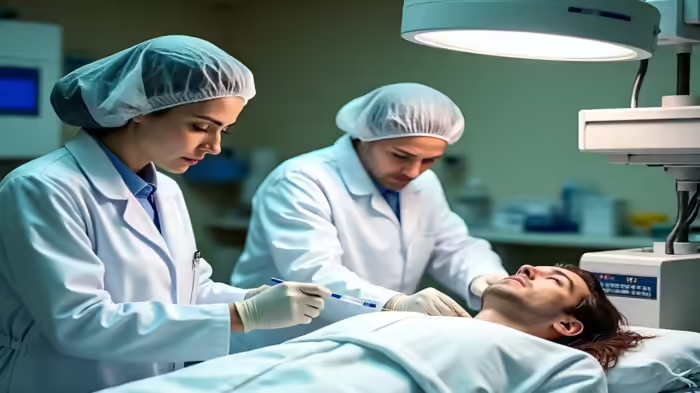
New Delhi: In a groundbreaking medical achievement, doctors at HCMCT Manipal Hospital in Dwarka, Delhi, have claimed to successfully perform Asia’s first medical procedure that restored blood circulation in a deceased woman’s body to preserve her organs for donation. This revolutionary technique has helped save the lives of three patients.
The case involves 55-year-old Geeta Chawla, who suffered from motor neuron disease and had been bedridden for a long time. After her death on November 6, her family expressed the wish to donate her organs. As a result, her liver was transplanted to a 48-year-old patient at ILBS Hospital, while her two kidneys were given to two men aged 63 and 58 at Max Hospital, Saket. In addition, her eyes and skin were also donated to help other patients.
After she was declared dead — with her heart stopped and ECG showing a flat line for over five minutes — the doctors used an Extracorporeal Membrane Oxygenator (ECMO) machine to restart blood circulation in her body. This advanced process, known as Normothermic Regional Perfusion (NRP), allowed the medical team to maintain organ viability for up to four hours after death, giving them sufficient time to retrieve and transplant the organs safely.
Dr. Sreekanth Srinivasan, Chairman of the Manipal Institute of Critical Care Medicine, explained that organ donation typically occurs in cases of brain death. “In this case, we managed to keep the organs alive even after the heart had stopped, which provided us with valuable time for safe transplantation,” he said.
Dr. Avnish Seth, Chairman of Gastroenterology, added that this marks the first successful Normothermic Regional Perfusion procedure in Asia, a milestone that could transform post-cardiac death organ donation practices in the future.
This remarkable achievement not only sets a new benchmark in medical science but also serves as a shining example of how one act of compassion can breathe life into many others.
Discover more from SD NEWS agency
Subscribe to get the latest posts sent to your email.
